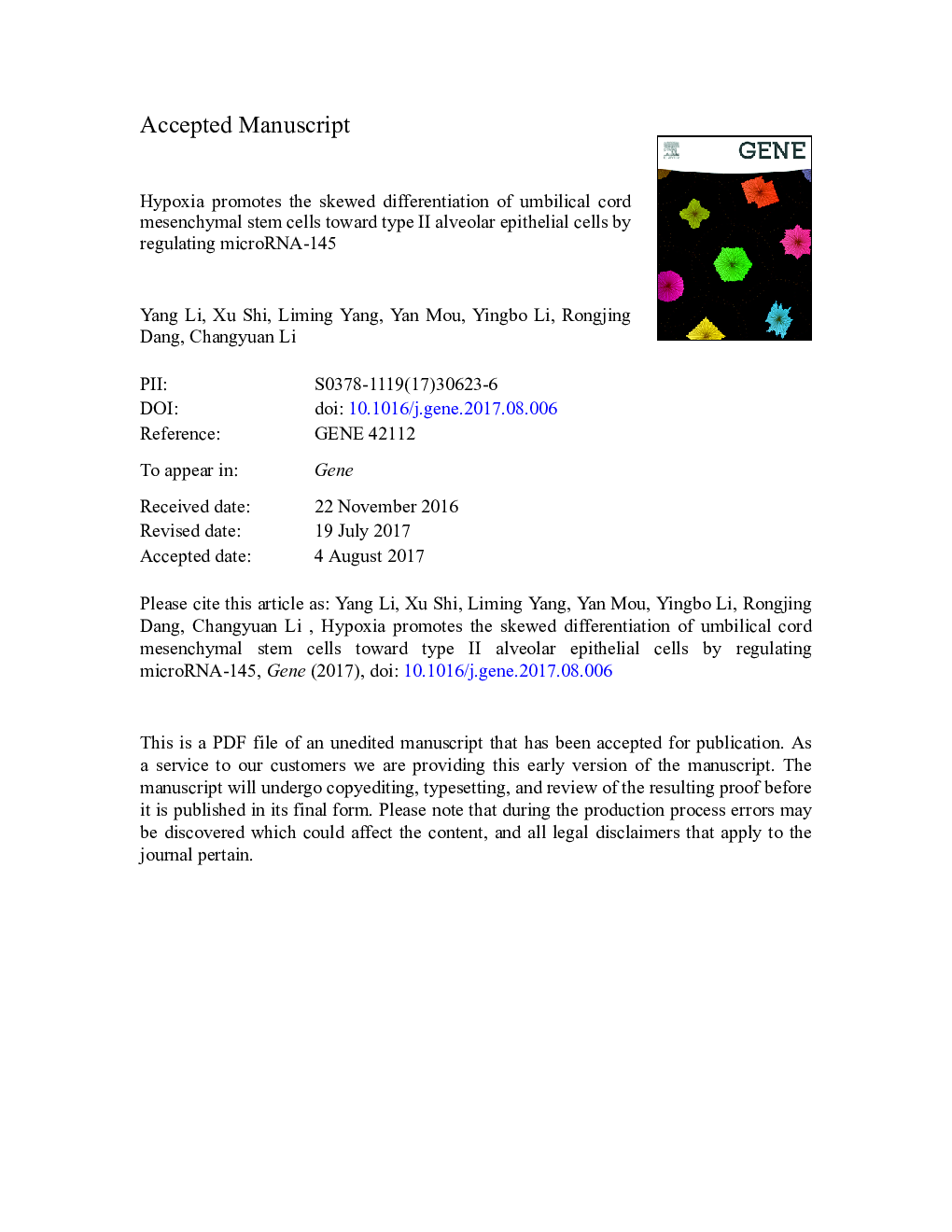| Article ID | Journal | Published Year | Pages | File Type |
|---|---|---|---|---|
| 5589322 | Gene | 2017 | 27 Pages |
Abstract
Mesenchymal stem cells (MSCs) are well recognized for their ability to differentiate into type II alveolar epithelial (ATII) cells in damaged lungs, which is critical for reepithelization and recovery in acute lung injury (ALI). However, the high level of transforming growth factor-β (TGF-β) commonly seen in injured lung tissues is also able to induce MSCs to differentiate into fibroblast-like cells. In this study, we found that hypoxia could promote umbilical cord mesenchymal stem cells (UCMSCs) differentiation into ATII cells rather than into fibroblast-like cells, and this effect was mainly mediated by microRNA-145 (miR-145), which could induce the inhibition of TGF-β signaling by targeting TGF-β receptor II (TGFβRII). Clarifying the function of hypoxia in the fate determination of MSCs is important for improving stem cell-based therapies for ALI.
Keywords
MUTmicroRNA-145Aquaporin 5ATIIKGFAQP5CoCl2CTGFMSCHIF-1α-SMADMEMFBSSMCbFGFDulbecco's modified Eagle's mediumMiR-145Acute lung injuryAliα-smooth muscle actinmutationfetal bovine serumSmooth muscle cellMesenchymal stem cellsCytokeratinshypoxia-inducible factor 1Keratinocyte growth factorConnective tissue growth factorCol-IType I collagenCobalt chloride
Related Topics
Life Sciences
Biochemistry, Genetics and Molecular Biology
Genetics
Authors
Yang Li, Xu Shi, Liming Yang, Yan Mou, Yingbo Li, Rongjing Dang, Changyuan Li,
